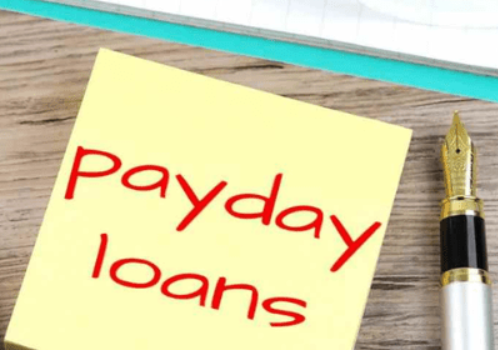
When unexpected expenses arise, such as a car repair, medical bills, or a sudden home issue, it might feel tempting to take out a payday loan. These loans are marketed as quick and easy solutions to financial problems. But before jumping in, it’s essential to carefully consider the implications and explore alternative options. While payday loans may seem like a fast fix, they come with significant risks that could worsen your financial situation in the long run.
Can I Afford the Payday Loan Payments?
The first thing to consider when thinking about a payday loan is whether you can truly afford the payments. Payday loans are typically due on your next payday, meaning you could be sacrificing a portion of your upcoming income. This can leave you struggling to pay for other essential expenses. Missing a payment or not being able to repay the loan on time often leads to additional fees, and it can quickly spiral into a bigger financial problem.
What Will a Payday Loan Actually Cost Me?
Understanding the full cost of a payday loan is crucial. While payday loans may seem like a quick fix, their high-interest rates and hidden fees can turn them into a much more expensive option than initially anticipated. In Canada, for example, payday loans can charge as much as $17 for every $100 borrowed. This translates to an annual percentage rate (APR) of 442%, which is astronomically high compared to other forms of borrowing, such as overdraft protection, credit cards, or personal loans.
For instance:
- Overdraft protection typically involves a $5 fee plus 21% annual interest.
- Unsecured lines of credit often have fees plus interest rates of around 8%.
- Cash advances on credit cards can also have fees plus interest rates around 23%.
Before committing to a payday loan, make sure you fully understand the interest rates, fees, and repayment terms to avoid getting trapped in a cycle of debt.
Is My Financial Problem Short-Term or Long-Term?
Payday loans may seem like a fast solution for covering short-term financial emergencies, but they don’t address underlying, long-term financial issues. For example, if you’re using a payday loan to pay for an unexpected car repair due to a maxed-out credit card, the root issue may be poor financial planning, lack of savings, or debt mismanagement.
To create lasting financial stability, it’s essential to focus on budgeting, saving, and seeking financial counseling. Long-term solutions, such as building an emergency fund, cutting unnecessary expenses, or setting up a debt repayment plan, will help you avoid relying on payday loans in the future.
What Happens If I Can’t Repay the Payday Loan?
The consequences of not being able to repay a payday loan on time can be severe. Late payments can lead to additional fees, interest charges, and even legal actions, trapping you in a never-ending cycle of debt. Possible consequences include:
- Fees from the payday lender for insufficient funds.
- Charges from your bank for returned payments.
- Accruing interest on the outstanding balance.
- The debt being rolled over into a new loan with additional fees.
- Potential involvement of a collection agency, which could affect your credit report.
- Legal action, such as being sued for the unpaid debt.
If your debt is sent to collections, it can significantly harm your credit score, making it even harder to access credit in the future.
How Could a Payday Loan Affect My Credit Score?
Many payday lenders report to credit bureaus, so if you take out a payday loan, it may show up on your credit report. While some payday loans might not be reported, failing to repay them or having your debt sent to collections will almost certainly affect your credit score negatively. This can make it harder to qualify for other types of loans or credit in the future, leaving you in a worse financial position.
What Are My Other Options?
Before resorting to a payday loan, consider exploring other options. Alternatives include personal loans, debt consolidation loans, borrowing from family or friends, or taking on additional work hours. Many of these alternatives come with lower interest rates and more favorable repayment terms compared to payday loans. Additionally, you might qualify for emergency assistance programs or employer salary advances that can help you cover urgent expenses without the burden of high-interest loans.
Final Thoughts
While payday loans may seem like an easy way out of a financial crunch, they often come with hidden costs and can lead to a deeper financial hole. Before taking out a payday loan, carefully assess whether you can afford the repayments, understand the full cost, and explore other more sustainable options. In many cases, alternatives such as personal loans, borrowing from loved ones, or even budgeting for an emergency fund can help you avoid the pitfalls of payday lending and provide more lasting financial solutions.









